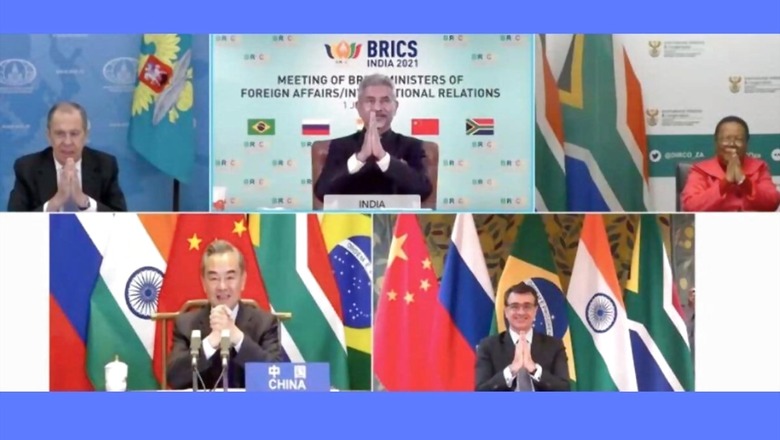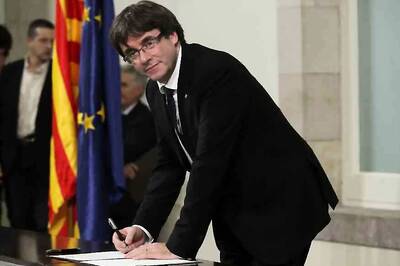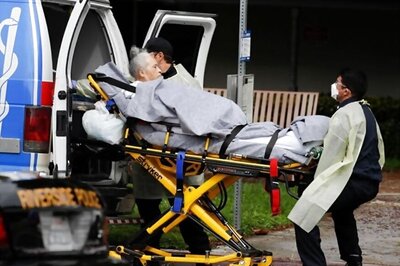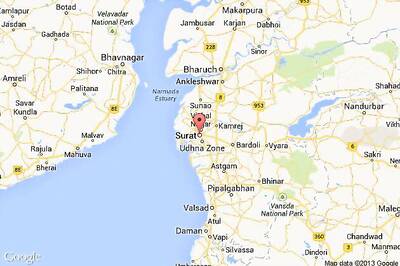
views
In a significant move, the five-nation grouping BRICS on Tuesday supported a proposal by India and South Africa to temporarily waive patents on COVID-19 vaccines and called for their equitable access and distribution while ensuring transparency on prices. Ways to deal with the coronavirus pandemic including sharing technology to boost production of vaccines and improving supply chains for medical products figured prominently at a virtual meeting of the foreign ministers of the BRICS (Brazil-Russia-India-China-South Africa) countries.
The grouping underlined the urgency for expeditious development and deployment of COVID-19 vaccines, especially in developing countries, and called for further close cooperation between various stakeholders for a diversified vaccine portfolio. The meeting, hosted by India in its capacity as BRICS chair for 2021, was attended by Chinese foreign minister Wang Yi, Russian foreign minister Sergey Lavrov, minister of international relations of South Africa Grace Naledi Mandisa Pandor and Brazilian foreign minister Carlos Alberto Franco. External Affairs Minister S Jaishankar chaired the meeting.
“The ministers reaffirmed the need to use all relevant measures during the pandemic, including supporting ongoing consideration in WTO on a COVID-19 vaccine intellectual property rights waiver and the use of flexibilities of the TRIPS (Trade-Related Aspects of Intellectual Property Rights) agreement,” a joint statement said. It said the ministers recognised the role of extensive immunisation against COVID-19 as a global public good for health in preventing, containing, and stopping transmission to bring the pandemic to an end and foster a rapid, inclusive and resilient recovery. The BRICS brings together five of the largest developing countries of the world, representing 41 per cent of the global population, 24 per cent of the global GDP and 16 per cent of the global trade.
“The ministers recognised that the current global challenges, particularly the COVID-19 pandemic, are a powerful reminder of the imperative to strengthen cooperation amongst states. “While acknowledging the measures taken by the WHO, governments, non-profit organisations, academia, business and industry in combating the pandemic, they also expect the international community to reform and strengthen policy responses of WHO to fight the COVID-19 pandemic and other current and future health challenges,” it said. The statement said the ministers stressed the need to promote initiatives aimed at ensuring timely, affordable, and equitable access to vaccines as well as of diagnostics, therapeutics, medicines.
“They also reiterated the need for sharing of vaccine doses, transfer of technology, development of local production capacities and supply chains for medical products, promotion of price transparency and called for the exercise of due restraint in the implementation of measures that could hinder the flow of vaccines, health products and essential inputs,” it said. The ministers also called for the timely establishment and effective operationalisation of the BRICS Vaccine Research and Development Centre and stressed the need for further work on the proposal for BRICS integrated early warning system for preventing mass infectious diseases risks.
They also noted that the COVID-19 crisis has posed many challenges for economic and financial stability. “They further emphasized the importance of delivering economic outcomes that reflect the needs and aspirations of BRICS in particular, and emerging markets and developing economies in general, especially the importance of BRICS in responding to the COVID-19 crisis through policy support and enhancing intra-BRICS and international coordination,” the statement said. In his comments, Wang said the BRICS now faces the profound and complex ramifications of the pandemic and changes unseen in a century. At the same time, he said opportunity may arise from the challenge.
In her remarks, Pandor talked about the proposal at the World Trade Organisation (WTO) seeking patent waiver for COVID-19 vaccines. The minister said there is a need to address the global gap of vaccine access to realise the ambition of “none of us are safe until all of us are safe” and leave behind the pandemic.
In his comments, Lavrov also expressed Russia’s solidarity with India in its fight against the pandemic.
Read all the Latest News, Breaking News and Coronavirus News here.


















Comments
0 comment